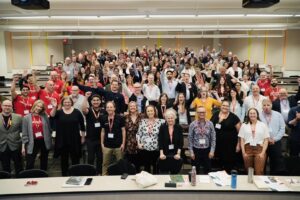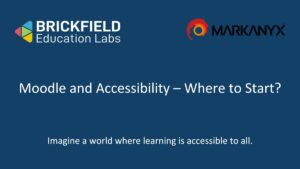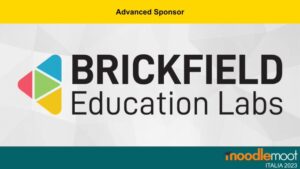Ireland & UK Moodlemoot 2023
This year, the UK and Ireland MoodleMoot was in full swing, gathering moodle practitioners together for learning, community engagement, and social connections, being online again like the last few years.
The organisers had hoped to run a face-to-face event, post-pandemic. However, the costs of hotels were just over the top as so many hotels are still struggling, dealing with their increased costs, lower staff numbers, and varying demand.
Because of this, the Ireland and UK MoodleMoot piloted a new variation of the online event, to include hubs. These hubs, organised by participating institutions, had their staff gathered together locally on their campus, as remote satellites.
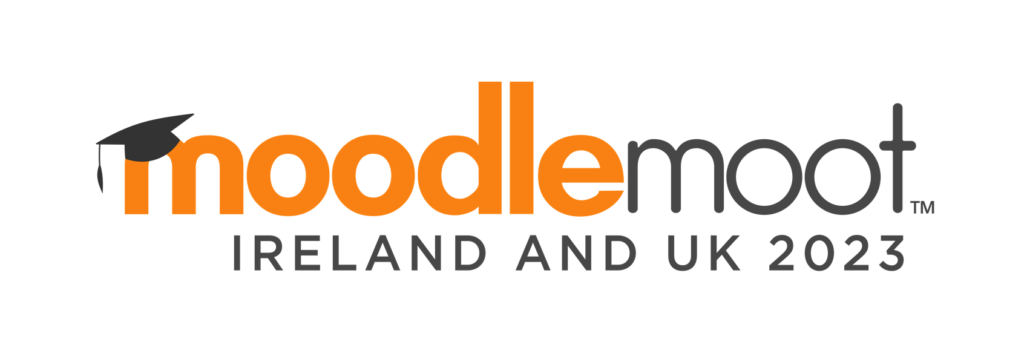
Usually institutions just purchase a few tickets for Moodlemoot, to allow some to attend face to face, and this often rotates among different staff members. However, the hub concept was to enable these institutions to be able to have more staff going to Moodlemoot, while still on campus in lecture theaters.
The benefit to the institution was that their staff could socialise and chat about the sessions among themselves during the event and of course socialise and reflect on topics during coffee and lunch at their venue. Any staff giving presentations could simultaneously present to their colleagues at their venue, and also to the online event.
Therefore, they were able to network with each other, even though they were not face to face socialising and interacting with the rest of the conference. Meanwhile, everyone still had social media and informal online chatter to converse on. Three institutions took part with varying impact.
Moodlemoot Sessions
The Moodlemoot was spread over three days, as normal. The first day started off with both the main keynote and then two panels being focused on artificial intelligence. This was a great opportunity to discuss the hot topic of AI and its impact, which is going to be significant.
Dr Mark Glynn of Ernst & Young (EY), formerly at DCU, delivered the keynote, intriguingly entitled “AI v AI”! This was followed by two panels discussing AI, firstly from the point of view of supporting teachers, and then secondly AI from point of view of helping students:
- How can Artificial Intelligence be integrated into the teaching experience for course builders / facilitators?
- How can Artificial Intelligence be integrated into the learning experience for students.?
Brickfield's Participation
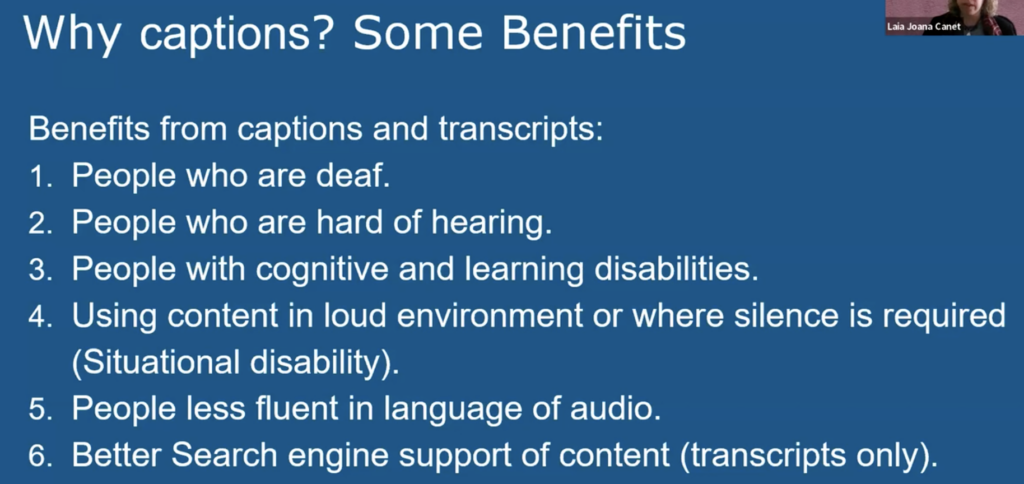
As a sponsor, we delivered a number of presentations:
- Alternate content formats – How to support your students – by Karen Holland, Laia Canet.
- Accessibility Bingo – Can you spot the common accessibility issues with this online course? by Gavin Henrick.
- Captioning your videos in Moodle, by Laia Canet.
Noteable presentations
The most impactful sessions from the community (and also occasionally challenging us with our powers of word play and punning!!) included:
- A panel on The Student Voice – what students wish for Moodle,
- “What we learnt about accessible maths in Moodle from (re)designing an engineering course for online: Gareth Peevers, University of Glasgow.
- Instructor and Student Moodle Wish list: Alicia Cundell, Concordia Univeristy,
- Conquering complexity of assessments underpinning the National Hairdressing Apprenticeship: Sheila McDonald, Lorraine Hickey, Limerick and Clare Education and Training Board.
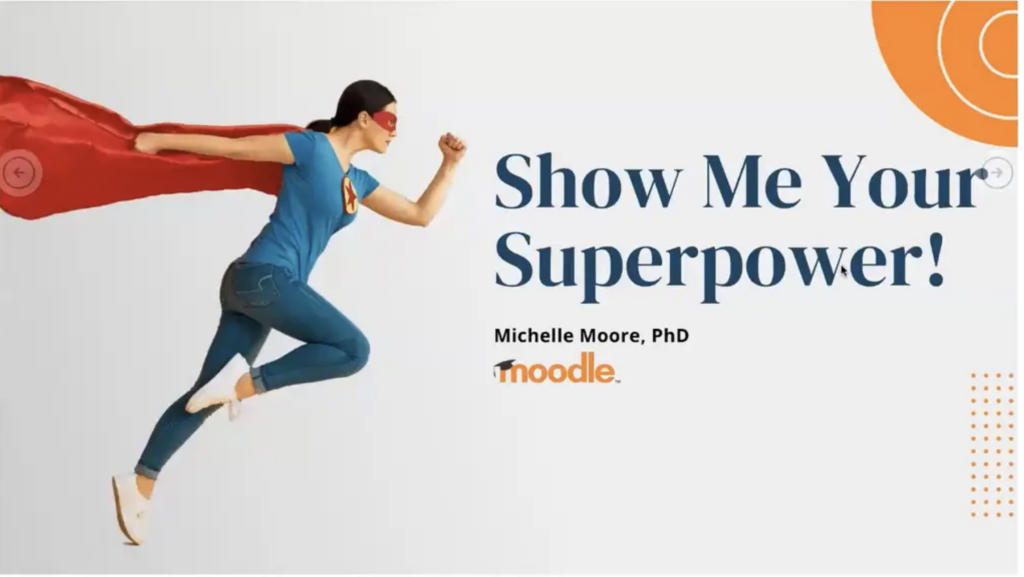
The Moodlemoot finished with an inspiring and electric session from Dr Michelle Moore, presenting findings from her recently awarded PhD (Congrats Michelle!). The interactive session – “Show me your Superpower!” brought people through the different skills which come into play when designing and writing online courses. Michelle also used Wooclap to demonstrate some fun interactive aspects during her compelling presentation.
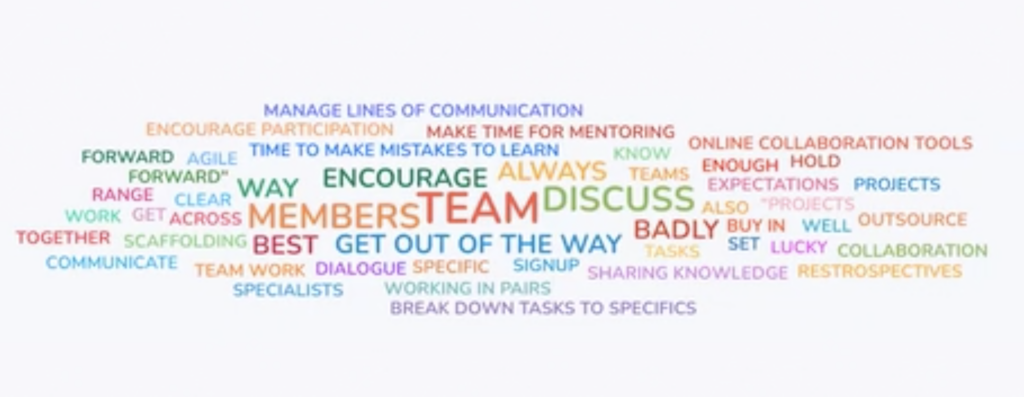
A big thank you again to all the sponsors, the organising staff, the presenters, the hosts, and most of all, everyone who attended, for making this another fantastic event.
We are looking forward to supporting the Ireland and UK Moodlemoot next year when the conference will be both face to face and a distributed enhanced hub version to keep inclusive collaboration and sharing at its core.


